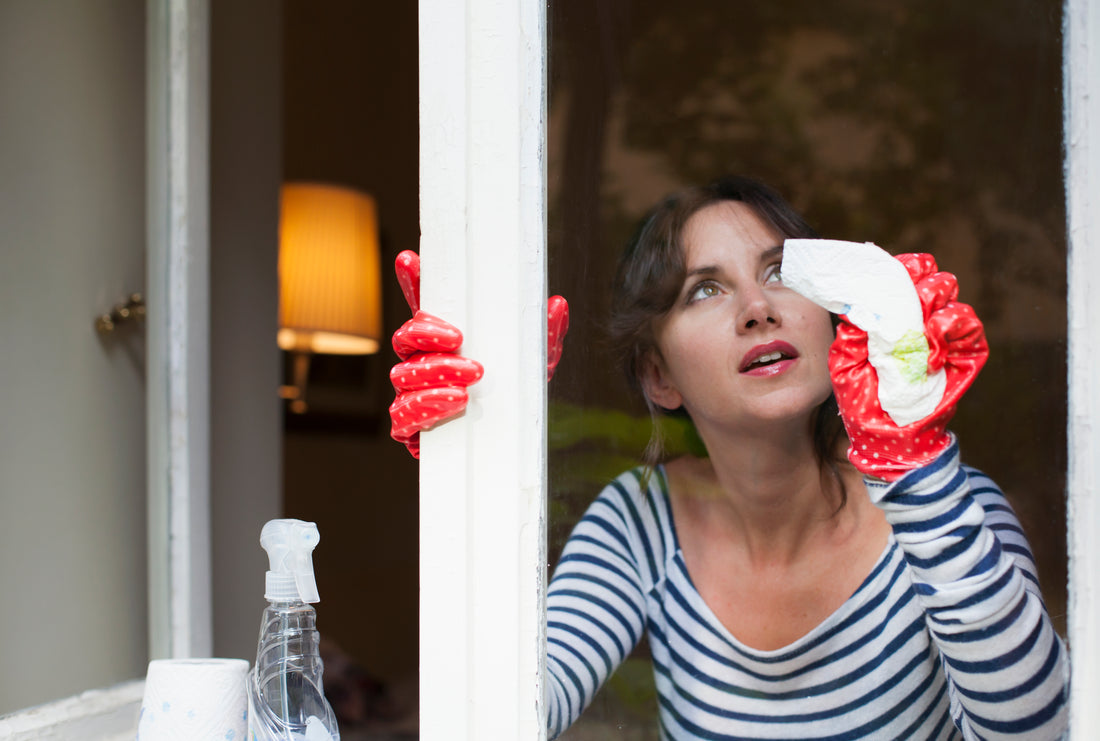A healthy living environment depends on maintaining a clean and fresh home. However, a lot of the cleaning supplies on the market now include harsh chemicals that can be bad for the environment and your health. Thankfully, essential oils offer a safe and efficient substitute. The therapeutic benefits of these concentrated plant extracts have been known for years, but they can also be tremendously helpful for cleaning your home. This article will examine the effectiveness of essential oils and show you how they may completely change the way you clean.
The Benefits of Using Essential Oils for Cleaning
Beyond only getting rid of dirt and grime, using essential oils for cleaning has several advantages. First off, essential oils are made 100% naturally from plants like eucalyptus, lemon, tea tree, and lavender. As a result, they are free of any synthetic poisons or chemicals that can endanger your health or the environment. You may create a toxic-free cleaning environment for you and your family by utilising essential oils.
Additionally, essential oils possess potent antibacterial qualities. Numerous essential oils have built-in antibacterial, antiviral, and antifungal effects. Examples include tea tree oil, lemon oil, and eucalyptus oil. They are therefore ideal options for cleaning surfaces and getting rid of dangerous bacteria, viruses, and mould. Essential oils, as opposed to chemical disinfectants, can effectively eliminate germs without leaving behind unpleasant residues or exposing people to chemicals.
Essential oils also have a wonderful aroma that can completely change the way you clean. The artificial fragrances of traditional cleaning products are frequently overbearing and unpleasant. Essential oils, on the other hand, offer a pure and uplifting scent that can improve your mood and make your home seem cosier. Essential oils may infuse your cleaning routine with a reviving and pleasurable fragrance, whether you prefer the relaxing aroma of lavender or the energising aroma of citrus oils.
Essential Oils for Common Cleaning Tasks
All-Purpose Cleaner
It's easy and efficient to make your own all-purpose cleaner with essential oils. One cup of water, one cup of white vinegar, and 10 to 15 drops of your choice essential oil should all be put in a spray bottle. Because of their ability to disinfect, lemon and tea tree oils are fantastic options. Before used, thoroughly shake the mixture to create a potent all-purpose cleaner that can remove grime, dirt, and grease from a variety of surfaces. Use this organic solution on glass surfaces as well as counters, appliances, and other hard surfaces without fear of injury.
Freshening Fabrics
Do you wish to provide a lovely aroma to your fabrics? Consider using essential oils. Put a moist cloth or dryer sheet, along with your washing, in the dryer with a few drops of your favourite essential oil. The essential oils like lavender, rosemary, and peppermint are good choices for giving your clothes a fresh scent. In a spray bottle, combine distilled water, a tablespoon of baking soda, and ten to fifteen drops of essential oil to make a fabric refreshing spray. Simply spritz your garments with this mixture to get rid of odours and enjoy the fragrant natural ingredients.
Finally, using essential oils to clean your home is a healthy and efficient option. Essential oils can completely change the way you clean because to their many advantages, including their all-natural makeup, antibacterial capabilities, and beautiful aromas. Essential oils can satisfy all of your cleaning needs, whether you're looking for an all-purpose cleaner, a fabric refresher, or even a natural air freshener. You can make your house safer, healthier, and more inviting by using essential oils into your cleaning regimen. Why not give it a shot and see for yourself the power of essential oils?
FAQ’s
Q: Are essential oils safe to use for cleaning purposes?
A: Yes, essential oils can be safely used for cleaning purposes. However, it's important to remember that they are highly concentrated and should be used in moderation. Always follow recommended dilution ratios and safety guidelines provided by the essential oil manufacturer. Additionally, some essential oils may not be suitable for use around pets or individuals with certain sensitivities, so it's advisable to do your research or consult with a healthcare professional if you have any concerns.
Q: Can essential oils effectively disinfect surfaces?
A: Yes, many essential oils possess antimicrobial properties that can effectively disinfect surfaces. Essential oils such as tea tree oil, lemon oil, and eucalyptus oil have natural antibacterial, antiviral, and antifungal properties. When used appropriately, they can help eliminate harmful bacteria, viruses, and mold. It's important to note that while essential oils can be effective, they may not be as potent as commercial chemical disinfectants, so it's essential to maintain proper cleaning practices and consider the specific needs of your cleaning situation.
Q: How can I incorporate essential oils into my cleaning routine?
A: Incorporating essential oils into your cleaning routine is easy and versatile. Here are a few ideas:
All-purpose cleaner: Create your own all-purpose cleaner by combining water, white vinegar, and a few drops of your preferred essential oil in a spray bottle. This mixture can be used on various surfaces to tackle dirt and grime effectively.
Fabric freshener: Add a few drops of essential oil to a damp cloth or dryer sheet and place it in the dryer with your laundry to give your fabrics a fresh and pleasant scent.
Air freshener: Mix water and a few drops of essential oil in a spray bottle to create a natural air freshener. Use it to freshen up the air in any room of your home, avoiding sensitive areas such as the face or eyes.
Remember to always test a small area before using essential oils on surfaces or fabrics to ensure compatibility and prevent any potential damage.


